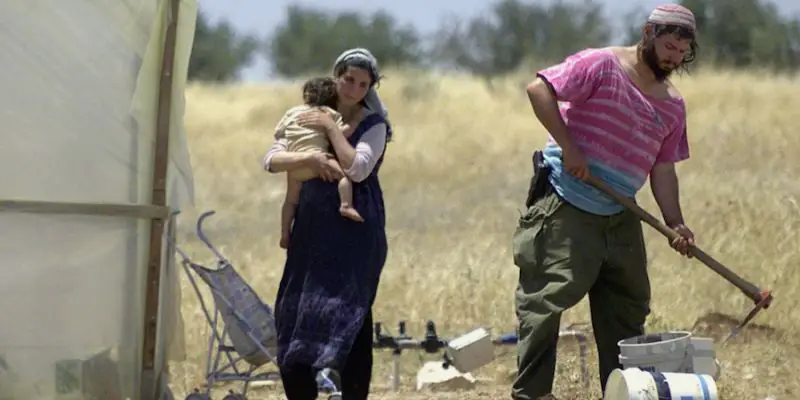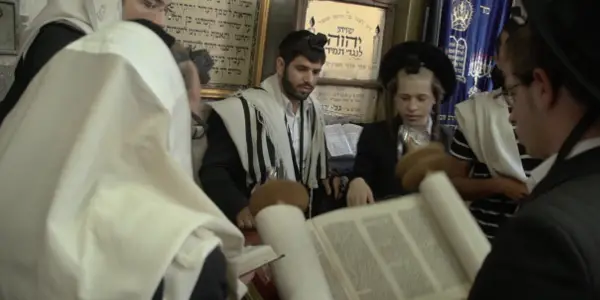COLLIDING DREAMS: The Zionist Dilemma

Rachel is an MA Film and Screen graduate from Goldsmiths,…
“I heard once somebody describing Zionism as a person escaping a burning building jumping out of the window and falling on somebody else’s head.”
– Orly Noy, Israeli peace activist
Colliding Dreams is a historical documentary exploring the history and ideas of Zionism, a nationalist movement of the Jewish community. The documentary examines Zionism in relation to the Jewish-Israeli occupation, a highly politically and religiously charged conflict between the Zionists and the Palestinians that continues until this day. The reasons and understandings behind the Jewish movement to Israel is often distorted or only seen as having religious connotations. However, what Colliding Dreams establishes is an in-depth emotional history of the foundations of Zionism and its relation to national identity.
A dramatic and eventful history of the Zionists is structured into four parts and a closing coda. Beginning with its origins in late 19th century Europe, the firsts Zionists in Palestine in 1882, and the move towards the beginnings of conflict with the Palestinians, the conflict turning into a war and then a coda of the current situation. These histories are presented through a lot of archive footage and interviews from various politicians, writers, and activists both Israeli and Palestinian. These interviews are thoughtful and insightful to not only the facts but also the emotion behind the stories and histories.
Handling History
The creation of emotion and meaning behind many of these interviews is due to the experience of the films directors. Colliding Dreams is directed by Joseph Dorman and Oren Rudavsky, two experienced documentary filmmakers, both having made documentaries about the history of Eastern Jewry, Dorman in his film portrait called Sholem Aleichem: Laughing in the Darkness (2011) and Rudavsky co- directing Hiding and Seeking: Faith and Tolerance After the Holocaust (2004).

But what is different about Colliding Dreams is that it has to address modern Jewish history. The situation in Israel is a highly relevant and controversial political topic of recent history and the way that the two directors see it is that the Jewish history of this conflict is massively overlooked. By exploring the post-World War II devastation and broken identity that the Jews felt, the film sheds new light upon Jews’ turn to Zionism and is pinnacle to understanding the current situation in Israel.
Colliding Dreams highlights that the Jews did not only move to Israel because of its relation to their religion, but that Zionism was created as an answer to anti-Semitism, the idea that the Jewish community didn’t feel like they truly belonged anywhere. It was a national identity crisis and they needed a place to thrive and build a future. Looking for a home and place of peace they went to Israel, a landscape of deep meaning to their religion. Colliding Dreams addresses this idea in an emotional and thoughtful way; the want for a secure and peaceful home is a human need.
The Missing Pieces
The same amount of thoughtful consideration has not been applied to the Palestinians and their understandings. Colliding Dreams presents the history of the Jewish community with detail but when moving into the present day it starts to lack. The documentary is purely about the Zionist history, but their actions and successes had a colossal effect on Palestine. This is where Colliding Dreams fails in detail; there is little reflection on how their actions had an effect on the Arab people and their lives. It acknowledges the conflict but doesn’t go into the important deep-set ideological issues.

Overall, Colliding Dreams is a well-structured and detailed account of the Zionists ideas and histories. It brings to light an emotional and moving argument for the Jews’ decision to move to Israel outside their religious motivations. Where is falls short is that it is almost completely about the past and doesn’t address the situation in Israel today. There is a distance and lack of reflection from the present that makes it feel a little too textbook.
The title “Colliding Dreams” implies that the dreams in questions are from Jews and from Palestinians, but the documentary is referring to an internal Jewish conflict. The shifting attitudes regarding Israel starting from “a place to call home and feel safe” to “legitimate historical claim” is the conflict of interests – as the film points out, its start as a “Jewish Problem” and ends with a
“Zionist Dilemma”. The documentary is very much set in the past, there is rarely a glimpse of modern-day Israel.
What do you think about documentaries that fail to reflect both sides of the story? Share your thoughts below.
Colliding Dreams opens in New York and Los Angeles on March 4.
Does content like this matter to you?
Become a Member and support film journalism. Unlock access to all of Film Inquiry`s great articles. Join a community of like-minded readers who are passionate about cinema - get access to our private members Network, give back to independent filmmakers, and more.
Rachel is an MA Film and Screen graduate from Goldsmiths, University of London. Her interests lie in cinematic landscapes, interactive media, documentary film and general screen stuffs.










